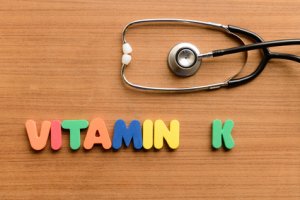Can vitamin B3 help prevent melanoma and regular skin cancer?
 A new study shows that vitamin B3 has the potential to prevent skin cancer and melanoma, which is the most dangerous type of skin cancer. Apparently, vitamin B3 can boost the body’s repair of DNA damage caused by UV radiation from the sun or sunbeds.
A new study shows that vitamin B3 has the potential to prevent skin cancer and melanoma, which is the most dangerous type of skin cancer. Apparently, vitamin B3 can boost the body’s repair of DNA damage caused by UV radiation from the sun or sunbeds.
Read more about how vitamin B3 helps prevent melanoma and regular skin cancer
- Created on .








 Magnesium is important for numerous physiological functions. In a new review article published in Nutrients, researchers have looked at the relation between the body’s magnesium levels and a variety of different ageing markers. Also, they hypothesize that optimal intake of magnesium throughout life is an easy and inexpensive way to obtain healthy ageing.
Magnesium is important for numerous physiological functions. In a new review article published in Nutrients, researchers have looked at the relation between the body’s magnesium levels and a variety of different ageing markers. Also, they hypothesize that optimal intake of magnesium throughout life is an easy and inexpensive way to obtain healthy ageing.

 According to a study from Ohio State University, Columbus, USA, people suffering from dry eyes may find relief by consuming more oily fish or taking a fish oil supplement.
According to a study from Ohio State University, Columbus, USA, people suffering from dry eyes may find relief by consuming more oily fish or taking a fish oil supplement. Vitamin D deficiencies are widespread among people who are overweight or have type-2 diabetes. However, researchers have not been able to explain the exact link. A study done by researchers from Baylor College of Medicine, Houston, Texas, suggests that it has something to do with vitamin D’s role in the brain, where the nutrient helps control both weight and blood sugar levels.
Vitamin D deficiencies are widespread among people who are overweight or have type-2 diabetes. However, researchers have not been able to explain the exact link. A study done by researchers from Baylor College of Medicine, Houston, Texas, suggests that it has something to do with vitamin D’s role in the brain, where the nutrient helps control both weight and blood sugar levels. The brain normally only uses blood sugar in the form of glucose. However, people suffering from insulin resistance have impaired cellular uptake of blood sugar, causing an energy shortage of the brain. According to a recent Israeli study, insulin resistance may speed up impairment of the cognitive functions that include the ability to think, speak, and solve problems. Because insulin resistance is an early stage of type-2 diabetes that spreads like an epidemic, there is every reason in the world to start preventing or treating this condition. A few dietary adjustments combined with a blood sugar-regulating trace element may do the trick.
The brain normally only uses blood sugar in the form of glucose. However, people suffering from insulin resistance have impaired cellular uptake of blood sugar, causing an energy shortage of the brain. According to a recent Israeli study, insulin resistance may speed up impairment of the cognitive functions that include the ability to think, speak, and solve problems. Because insulin resistance is an early stage of type-2 diabetes that spreads like an epidemic, there is every reason in the world to start preventing or treating this condition. A few dietary adjustments combined with a blood sugar-regulating trace element may do the trick. Approximately one in seven couple is childless. Although there can be many underlying causes, poor sperm quality is an increasing problem. It may be caused by a lack of certain nutrients and exposure to different environmental factors, but, fortunately, it possible to improve sperm quality and increase the chances of conception by means of relevant dietary adjustments and the use of specific supplements. New research shows that epigenetic factors (factors that affect the environment of the sperm cell) determine sperm health and are therefore crucial for activating the genes of the sperm cell so the fetus can develop.
Approximately one in seven couple is childless. Although there can be many underlying causes, poor sperm quality is an increasing problem. It may be caused by a lack of certain nutrients and exposure to different environmental factors, but, fortunately, it possible to improve sperm quality and increase the chances of conception by means of relevant dietary adjustments and the use of specific supplements. New research shows that epigenetic factors (factors that affect the environment of the sperm cell) determine sperm health and are therefore crucial for activating the genes of the sperm cell so the fetus can develop. Many older people sleep poorly and tend to have elevated blood pressure. Luckily, supplementation with melatonin seems to correct both problems. Melatonin can even improve sleep in people who take beta-blockers for high blood pressure. So what is melatonin, and why is this substance particularly useful for older people?
Many older people sleep poorly and tend to have elevated blood pressure. Luckily, supplementation with melatonin seems to correct both problems. Melatonin can even improve sleep in people who take beta-blockers for high blood pressure. So what is melatonin, and why is this substance particularly useful for older people? Vitamin K2 clears calcium from the bloodstream and embeds it in bone tissue. Therefore, vitamin K2 is of vital importance to bone building and the prevention of atherosclerosis. Medical News Bulletin has placed even more focus on vitamin K2’s role in maintaining strong bones and reducing the risk of a fracture. The question is, how much vitamin K2 do we really need for optimal bone health, and why is it important to know the difference between vitamin K1 and vitamin K2?
Vitamin K2 clears calcium from the bloodstream and embeds it in bone tissue. Therefore, vitamin K2 is of vital importance to bone building and the prevention of atherosclerosis. Medical News Bulletin has placed even more focus on vitamin K2’s role in maintaining strong bones and reducing the risk of a fracture. The question is, how much vitamin K2 do we really need for optimal bone health, and why is it important to know the difference between vitamin K1 and vitamin K2? We consume far too much sugar from candy, soft beverages or in the form of concealed sugar in our food. This impairs the body’s uptake and utilization of calcium and magnesium. Sugar can skew the body’s mineral balance, thereby setting the stage for osteoporosis and an increased fracture risk caused by minor strains. Children and youngsters are particularly prone to bone weakening and osteoporosis from an early age, which is why there is good reason to lower the threshold level for sugar intake.
We consume far too much sugar from candy, soft beverages or in the form of concealed sugar in our food. This impairs the body’s uptake and utilization of calcium and magnesium. Sugar can skew the body’s mineral balance, thereby setting the stage for osteoporosis and an increased fracture risk caused by minor strains. Children and youngsters are particularly prone to bone weakening and osteoporosis from an early age, which is why there is good reason to lower the threshold level for sugar intake. Folic acid plays a role in tissue growth and fetal development during pregnancy. A new study that was presented at an annual congress for British psychologists in Brighton shows that folic acid supplements may even improve the child’s psychological development. This is vital for the child’s ability to handle his or her own feelings and managing socially.
Folic acid plays a role in tissue growth and fetal development during pregnancy. A new study that was presented at an annual congress for British psychologists in Brighton shows that folic acid supplements may even improve the child’s psychological development. This is vital for the child’s ability to handle his or her own feelings and managing socially. "After about one week of taking the Q10 supplement I could feel a huge difference," says 23-year old Alan Piccini, who has been suffering from extreme fatigue and muscle aches ever since he was a child.
"After about one week of taking the Q10 supplement I could feel a huge difference," says 23-year old Alan Piccini, who has been suffering from extreme fatigue and muscle aches ever since he was a child. “Taking capsules with co-enzyme Q10 has freed me of the severe side effects of my cholesterol lowering medicine,” Mrs Franken explains.
“Taking capsules with co-enzyme Q10 has freed me of the severe side effects of my cholesterol lowering medicine,” Mrs Franken explains.